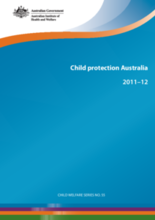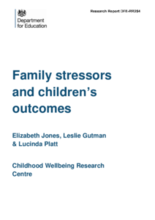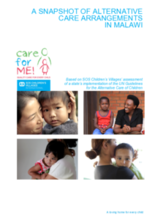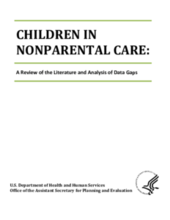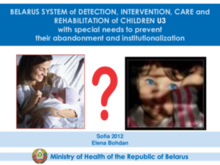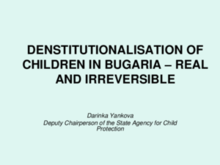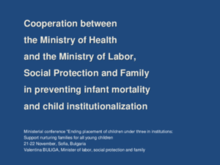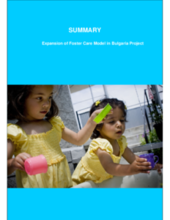Displaying 1971 - 1980 of 2223
This document is the 16th annual report on child protection in Australia. The report includes detailed statistical information on child protection services provided on the state and territory level as well as demographic and background information on the children receiving services.
This new study from the Childhood Wellbeing Research Centre, an independent research center with funding from the United Kingdom Department for Education, identifies which family stress factors and parental behaviors are associated with positive and negative outcomes for children at the age of 7 and whether stressful life events experienced in childhood are associated with negative outcomes in adolescence.
This newsletter, translated into English, is the first of three issues produced by the “Protecting children of Moldova from family separation, violence, abuse, neglect and exploitation” project, which is implemented by Partnerships for Every Child, the Ministry of Labour, Social Protection and Family of Moldova, and the Ministry of Education of Moldova.
This report from SOS Children’s Villages assesses Malawi’s compliance with, and implementation of, the UN Guidelines on the Alternative Care of Children.
In its Annual report (2011-2012), the Indian Ministry of Women and Child Development reports on progress in the implementation of the Integrated Child Protection Scheme (ICPS), a new policy and programmatic strategy that specifically articulates the need to move away in approach and services from over-reliance on institutional care and towards responses that support family based care.
This literature review summarizes the research on children who live apart from their parents and identifies gaps in knowledge regarding this vulnerable population. This literature review was developed as a step toward designing the National Survey of Children in Nonparental Care, a nationally representative telephone survey of adults caring for these children.
This presentation to the 2012 Sofia Conference introduces social services available in Belarus for the identification, intervention, care, and rehabilitation of children under the age of 3 with disabilities, in order to prevent their abandonment and placement in institutions.
This presentation to the 2012 Sofia Conference by Darinka Yankova, Deputy Chairperson of the State Agency for Child Protection addresses the challenges and the new vision for the deinstitutionalization of children in the Republic of Bulgaria.
This presentation to the 2012 Sofia Conference by Valentina Buliga, Minister of Labor in Moldova, Social Protection and Family, introduces Moldova's ongoing collaboration between the Ministry of Health and the Ministry of Labor to reduce infant mortality and the placement of children under the age of 3 in institutions.
This summary report describes the project UNICEF has undertaken with the government of Bulgaria to establish a nationwide regional approach to foster care development based on its pilot experience. The project included a national public awareness campaign, establishment of specialized foster care services, and capacity building of the statutory child protection bodies.

